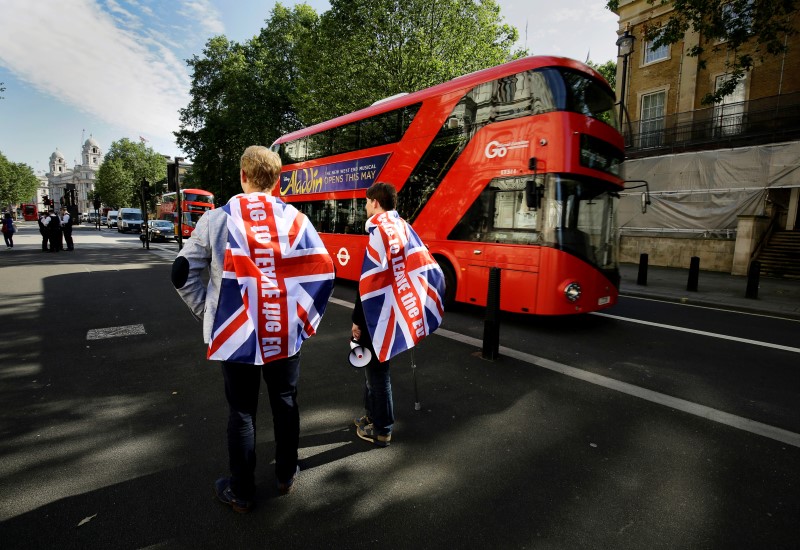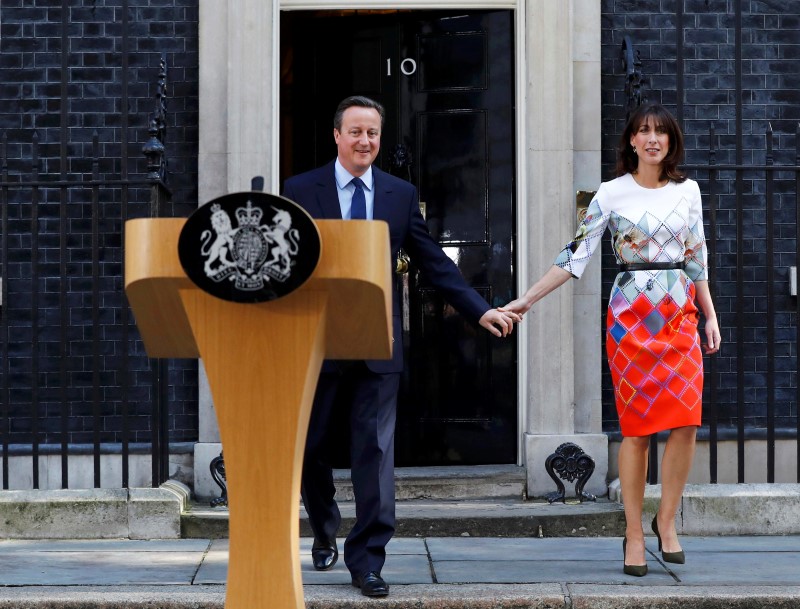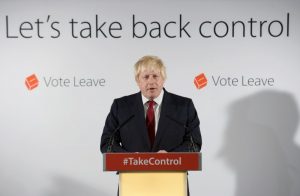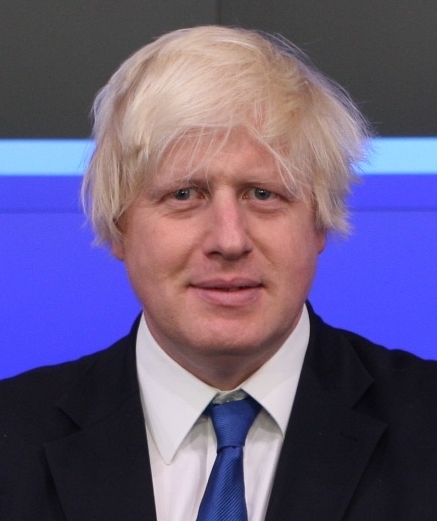
JONATHAN MANTHORPE: International Affairs
June 24, 2016
When I was born in 1944 my parents lived a few hundred yards from where George Vancouver grew up in Kings Lynn, on England’s North Sea coast where the thrills of the horizon and the world beckon.
In moments of inexcusable hubris, I sometimes fantasize that Vancouver and I, two Norfolk boys raised a few streets apart, neatly bracket the story of the British Empire.
The difference is that he was one of the heroes of the beginning while I, even in my most illustrious moments, am only a chronicler of the end. By some lights, my life has been a long last dance.

In my early years after the Second World War Britain’s Empire was still almost intact. And even though my school days were buffeted by Prime Minister Harold Macmillan’s 1960 “winds of change” speech to the South African parliament, some of my classmates went off to be the last generation of British district officers in West Africa and elsewhere. The era of imperial decline was unstoppable, and quite rightly so. After over 50 years as a journalist – 40 of them as a foreign correspondent – I have lost count of the number of times and places where I have seen the union jack rung down at midnight.
The shrinking and diminishing of Britain stopped, however, when it joined what was then the European Economic Community in 1973.
The early years were tough as the British economy adjusted to the new realities and Margaret Thatcher’s political revolution in the 1980s changed Britain’s view of itself and the world. But membership of what is now the European Union (EU) has been good for Britain, and the booming, modernized British economy has been good for the EU.
So what happened on Thursday, when British voters opted by 52 per cent to 48 per cent to leave the EU, is perplexing. It looks like a short-sighted and self-destructive act of mindless petulance.
The English urban blue collar, Labour Party supporters and rural Conservatives who powered this drive to leave the EU appear to have been driven by a sense of frustrated powerlessness. The opportunity to kick the establishment classes in the shins – if not higher – was too tempting to miss. The majority is lashing out in blind rage, not a considered valuation of the future of the country.
Conservative Prime Minister David Cameron called the referendum at a time when it appeared – briefly – that his party might lose support to the right-wing and charmless United Kingdom Independence Party. His prime purpose, though, was to silence noisy and rebellious Tories on his own backbenches and among his cabinet ministers.
But Cameron and the monumentally underwhelming Labour Party leader Jeremy Corbyn both clearly felt that the benefits of EU membership are so self-evident that serious campaigning for the “Remain” ticket was unnecessary. Cameron made only half-hearted attempts earlier this year to negotiate a new deal with Brussels aimed at securing British sovereignty over issues like immigration. He came away with nothing substantial. This was just the kind of thoughtless lack of attention to public opinion that so irritates many voters.
Both Cameron and Corbyn will pay for their disdain with their jobs. Cameron announced on Friday morning he will step down by the time of the Tory party annual conference in October. Corbyn too is toast, though he may not realize it yet.
Among the many stupidities in Cameron’s management of the referendum was allowing a simple majority for victory. The “Leave” vote of 52 per cent is decisive, but it is also divisive. Nearly half the population wants to stay in Europe. Lines have been drawn for turmoil in British politics for years to come. On a matter of this importance to the future and stability of the country a two-thirds majority for change would have made much more sense.
The majority of voters dismissed the economic arguments for Britain remaining in the EU as irrelevant to their concerns. What bugs the majority is the perception that the country is being flooded by immigrants, over whose entry the British people have no control. Brussels is blamed for foisting this cultural erosion on Britain and constantly sucking more and more sovereign powers from the Westminster parliament. And to add injury to insult, Britain, the EU’s second largest economy, contributes massively to Brussels’ coffers for the privilege of being abused.
None of these beliefs stands up to much scrutiny. They are the same kind of mythologies that energize Donald Trump’s supporters in the United States.
They may be myths, but they have changed the world. Britain’s departure from the EU will be a journey across new territory full of terrors and treacherous terrain.
To start with, there is now huge political uncertainty in Britain.

The most likely person to succeed Cameron as Tory party leader and Prime Minister is Boris Johnson, the engaging but thoroughly untrustworthy former Mayor of London. Johnson made himself leader of the “Leave” campaign, though a widely held view by those who have watched him from up close is that he is driven by political ambition rather than Eurosceptic philosophy.
The indications so far are that Johnson will seek what is known as an “EU-lite” relationship with Europe. Two non-EU members, Norway and Switzerland have this kind of free market relationship with the EU. However, these deals require Norway and Switzerland to confirm to most EU rules, including the free movement of people which so infuriates the majority of British voters. Switzerland and Norway are also required to pay Brussels large amounts of money to finance the relationship. But neither country sends members to the European Parliament or has officials in the Brussels bureaucracy. The result is that Switzerland and Norway have to comply with the EU’s diktats without having any voice or influence in their creation.
It seems highly unlikely that British voters will think that still having to obey the EU’s rules without having any say in their writing is any advance on what they have now.
All this will play out over the next four years. The process for Britain’s departure will be set in motion when the London government invokes Article 50 of the Treaty of Lisbon. This envisages a two-year period when London will negotiate with the European Commission, the European Parliament and the remaining 27 EU members the terms of Britain’s departure and its future relationship with the EU. That timetable is not fixed and it will probably extend into three years or so. But the new Conservative government will probably want to get the deal done before the next British election due in May, 2020.
By that time there may not be a Britain as we know it now. Among the several social and political divisions revealed in the results of the referendum vote is a clear divide between England and Scotland. The Scots voted 62 per cent to stay in the EU with only 38 per cent opting to quit.

In 2014 a referendum on Scottish independence from the United Kingdom was defeated only narrowly. The leader of the Scottish National Party, Nicola Sturgeon, who is also First Minister of the regional government, said on Friday that a new independence referendum is now “highly likely.” Given the Scots’ attachment to the EU, it is almost certain they would opt to leave the United Kingdom, which they joined in 1603.
Similar reassessments will go on in Northern Ireland. With Britain out of the EU, Northern Ireland’s border with the Irish Republic will close. The free movement of people and goods across the border is an important element in the peace arrangements that brought an end to the 30-year-long terrorist war between Irish Nationalists and Ulster Unionists. The closing of the border again will prompt the people of Northern Ireland, including the unionists, to re-evaluate where their long-term interests lie.
By the time Britain departs the EU it might consist only of England and Wales, though it is by no means certain that the Welsh are dedicated partners in the Brexit adventure.
The country that finally leaves the EU could well be only an English recalcitrant rump of Britain.
However unappetizing, the Brexit example is seen by many as a danger to the entire EU project. Euroscepticism is flourishing in Sweden, Denmark and the Netherlands. There will undoubtedly be pressure in all three countries for their own referenda on quitting the EU.
In other countries central to the EU project and the continued integration of the member states, such as Germany, France and Italy, there are unlikely to be demands for departure votes. But in all three of those countries, as well as in other EU member states such as Hungary and Poland, right wing parties are winning growing support. This is largely a result of the EU’s shambolic response to the flood of refugees from Africa and the Middle East, but it is challenging the assumption, by the high priests of the EU, that ever faster and deeper integration is the only way forward.
Britain is the EU’s second largest economy, after Germany, and its departure is going to rattle the economic underpinnings of Europe until a new relationship is worked out. Brexit will also force the EU architects to re-examine what they are building, and to whose benefit. The EU needs to tackle its democratic deficit that allows nonsense like the creation of the unsustainable euro common currency and other efforts to force members into a political union for which they are neither ready nor willing.
Britain under several prime ministers of all political stripes has been quarrelling with Brussels almost from the moment the country joined the EU. It is a grim commentary on the culture of the EU that Britain has to stamp its foot and storm out of the room to get attention. If that is the outcome of Brexit, then something positive may yet come out of what looks at the moment like a debacle.
Copyright Jonathan Manthorpe 2016
Contact — including for syndication/republishing of Jonathan Manthorpe’s columns –message: jonathan.manthorpe@gmail.com
Related on F&O:
Small Stampede for the Brexit, by Jonathan Manthorpe, June 11, 2016
It is unlikely that Britons are going to give a conclusive answer to the question whether they should remain in the European Union or leave it when they mark their referendum ballots on June 23.
Sadiq Khan: British dream reality for London’s first Muslim mayor, by Parveen Akhtar
In Pakistan, the chances that the son of a bus or rickshaw driver could secure a high-ranking political position in the country’s capital city are minuscule. But now, the people of London have elected Sadiq Khan – the son of an immigrant Pakistani bus driver – to be their first Muslim mayor. …read more
The Trump virus goes global, by Jonathan Manthorpe
Trumpery – the political disease that is convulsing the United States and which is characterized by incompetence, boastfulness and danger – appears to be mutating into a world-wide epidemic. Like America’s Donald Trump, London’s Boris Johnson and Rodrigo Duterte of the Philippines are riding a wave of public disgust for traditional politicians.
The Boris Show heads for prime time, by Jonathan Manthorpe
Boris Johnson, the Mayor of London who unashamedly lusts to be Tory Prime Minister of Britain, clearly relishes his role as a source of public entertainment. In his nearly two decades in the public eye, Johnson has made buffoonery a high political art form. And public delight at his verbal indiscretions, temperamental inability to parrot contemporary political correctness, willingness to make a fool of himself, and genial, basset-hound features have aligned into considerable political backing.
 Jonathan Manthorpe is a founding columnist with Facts and Opinions and is the author of the journal’s International Affairs column. He is the author of “Forbidden Nation: A History of Taiwan,” and has been a foreign correspondent and international affairs columnist for nearly 40 years. Manthorpe’s nomadic career began in the late 1970s as European Bureau Chief for The Toronto Star, the job that took Ernest Hemingway to Europe in the 1920s. In the mid-1980s Manthorpe became European Correspondent for Southam News. In the following years Manthorpe was sent by Southam News, the internal news agency for Canada’s largest group of metropolitan daily newspapers, to be the correspondent in Africa and then Asia. Between postings Manthorpe spent a few years based in Ottawa focusing on intelligence and military affairs, and the United Nations. Since 1998 Manthorpe has been based in Vancouver, but has travelled frequently on assignment to Asia, Europe and Latin America.
Jonathan Manthorpe is a founding columnist with Facts and Opinions and is the author of the journal’s International Affairs column. He is the author of “Forbidden Nation: A History of Taiwan,” and has been a foreign correspondent and international affairs columnist for nearly 40 years. Manthorpe’s nomadic career began in the late 1970s as European Bureau Chief for The Toronto Star, the job that took Ernest Hemingway to Europe in the 1920s. In the mid-1980s Manthorpe became European Correspondent for Southam News. In the following years Manthorpe was sent by Southam News, the internal news agency for Canada’s largest group of metropolitan daily newspapers, to be the correspondent in Africa and then Asia. Between postings Manthorpe spent a few years based in Ottawa focusing on intelligence and military affairs, and the United Nations. Since 1998 Manthorpe has been based in Vancouver, but has travelled frequently on assignment to Asia, Europe and Latin America.
~~~
Real journalism is not free. If you value evidence-based, non-partisan, spam-free information, please support Facts and Opinions, an employee-owned collaboration of professional journalists. Details here.
![]()
F&O’s CONTENTS page is updated each Saturday. Sign up for emailed announcements of new work on our free FRONTLINES blog; find evidence-based reporting in Reports; commentary, analysis and creative non-fiction in OPINION-FEATURES; and image galleries in PHOTO-ESSAYS. If you value journalism please support F&O, and tell others about us.


